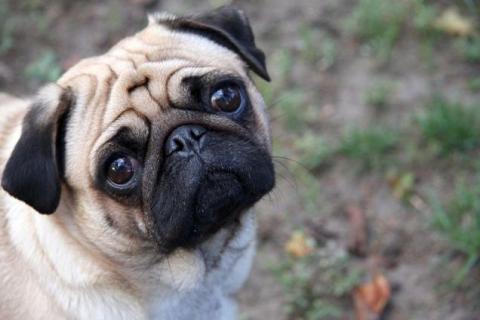Jealousy in Dogs
To test the idea that dogs can be driven by jealousy, Harris and her collaborator Caroline Prouvost recruited 36 university students with small dogs. "We didn't want to have some German shepherd go ballistic on us," Harris says. She asked the pet owners to focus on three different objects in turn. One was a children's book, one was a plastic jack-o'-lantern pail and the third was a toy dog that briefly barked and wagged its tail when a button on its head was pushed.
When the human subjects read the book out loud, few of the dogs showed any interest. But when the humans cooed and stroked the fake dog, the real dogs went on the warpath. They snapped at the toy and even bit it. They pushed their owners or the toy dog. They whined and barked. They showed the same behaviors, though to a lesser degree, when their humans petted and lavished endearments on the plastic pail, Harris and Prouvost report in this week's PLOS ONE.
Many researchers have argued that unlike sadness and anger, jealousy requires complex cognitive abilities and consists of a blend of feelings, rather than being a fundamental "core" emotion. But these results imply that you don't need sophisticated thinking to fuel jealous actions, Harris says.
The study is "carefully and meticulously constructed," says Texas Tech University's Sybil Hart, who is not connected to the new study. The new findings dovetail with her own research on human babies to suggest "jealousy is part of human nature. It's not a pathology that is only found in individuals who are flawed."
But Indiana University's Jonathon Crystal, who studies memory and cognition, wonders whether the dogs may have learned these behaviors to get attention without the motivation of jealousy. Harris responds that if the dogs only wanted attention, they would've tried the same tricks when their owners were fussing over the jack-o-lantern or reading the book. Instead, the dogs were most likely to snap and try to thrust the interloper away when confronted with their toy "rival."
That's not to say that the dogs' internal experience is the same as that of humans confronted by a romantic rival, Harris says. "We perseverate on these things. We ruminate on them, we imagine things, we ask questions about ourselves," she says, whereas "once the love triangle is over, the dog is probably over it."
Traci Watson

